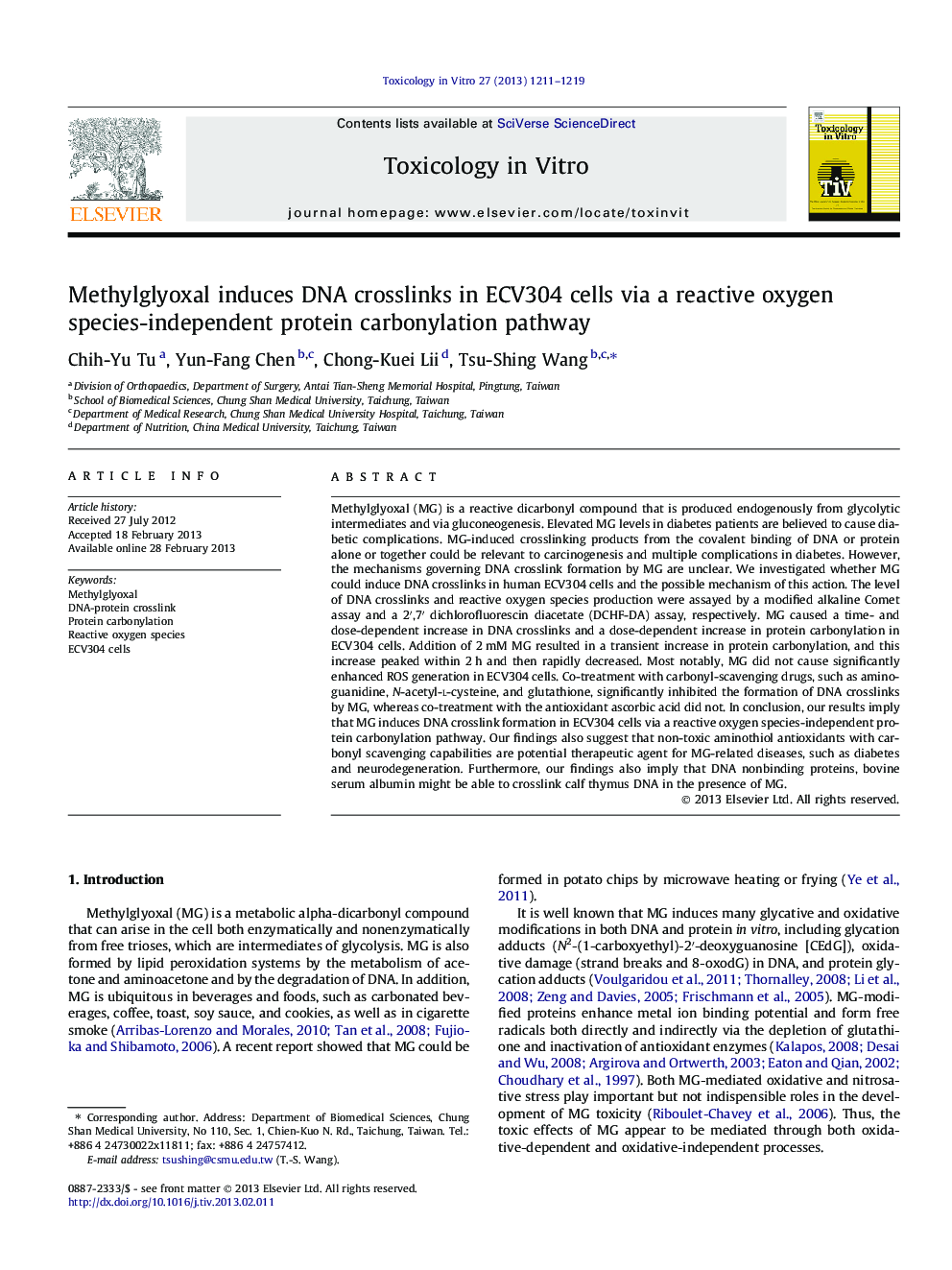| کد مقاله | کد نشریه | سال انتشار | مقاله انگلیسی | نسخه تمام متن |
|---|---|---|---|---|
| 5861952 | 1133770 | 2013 | 9 صفحه PDF | دانلود رایگان |

Methylglyoxal (MG) is a reactive dicarbonyl compound that is produced endogenously from glycolytic intermediates and via gluconeogenesis. Elevated MG levels in diabetes patients are believed to cause diabetic complications. MG-induced crosslinking products from the covalent binding of DNA or protein alone or together could be relevant to carcinogenesis and multiple complications in diabetes. However, the mechanisms governing DNA crosslink formation by MG are unclear. We investigated whether MG could induce DNA crosslinks in human ECV304 cells and the possible mechanism of this action. The level of DNA crosslinks and reactive oxygen species production were assayed by a modified alkaline Comet assay and a 2â²,7â² dichlorofluorescin diacetate (DCHF-DA) assay, respectively. MG caused a time- and dose-dependent increase in DNA crosslinks and a dose-dependent increase in protein carbonylation in ECV304 cells. Addition of 2Â mM MG resulted in a transient increase in protein carbonylation, and this increase peaked within 2Â h and then rapidly decreased. Most notably, MG did not cause significantly enhanced ROS generation in ECV304 cells. Co-treatment with carbonyl-scavenging drugs, such as aminoguanidine, N-acetyl-l-cysteine, and glutathione, significantly inhibited the formation of DNA crosslinks by MG, whereas co-treatment with the antioxidant ascorbic acid did not. In conclusion, our results imply that MG induces DNA crosslink formation in ECV304 cells via a reactive oxygen species-independent protein carbonylation pathway. Our findings also suggest that non-toxic aminothiol antioxidants with carbonyl scavenging capabilities are potential therapeutic agent for MG-related diseases, such as diabetes and neurodegeneration. Furthermore, our findings also imply that DNA nonbinding proteins, bovine serum albumin might be able to crosslink calf thymus DNA in the presence of MG.
⺠Methylglyoxal caused a time- and dose-dependent increase in DNA crosslinks. ⺠Methylglyoxal resulted in a transient increase in protein carbonylation. ⺠Methylglyoxal did not cause any appreciable ROS generation in ECV304 cells. ⺠Methylglyoxal-induced DNA crosslinks were selectively blocked by thiol and amino antioxidants. ⺠Serum albumin enhanced methylglyoxal-induced DNA crosslinks in calf thymus DNA.
Journal: Toxicology in Vitro - Volume 27, Issue 4, June 2013, Pages 1211-1219